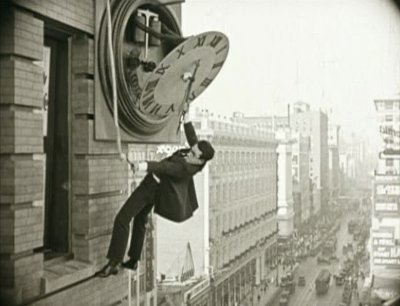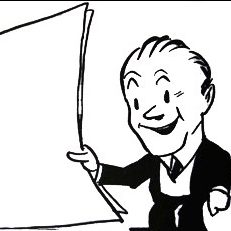 As you travel along on your screenwriting journey, you’ll discover that time can drag on and on while you write your screenplays. Time is a screenwriter’s greatest asset to use or worst enemy. If we don’t have the proper amount of protected time to write—we don’t create the solid body of work necessary to compete. Also time burns quickly in Hollywood. It can take years for your script to find the right producer, network or studio. My fifth spec screenplay was the one that “launched” my career, it was optioned, went into development, finally sold and produced and distributed. But that took six years out of film school and two years after that until the first day of production. A long haul journey indeed.
As you travel along on your screenwriting journey, you’ll discover that time can drag on and on while you write your screenplays. Time is a screenwriter’s greatest asset to use or worst enemy. If we don’t have the proper amount of protected time to write—we don’t create the solid body of work necessary to compete. Also time burns quickly in Hollywood. It can take years for your script to find the right producer, network or studio. My fifth spec screenplay was the one that “launched” my career, it was optioned, went into development, finally sold and produced and distributed. But that took six years out of film school and two years after that until the first day of production. A long haul journey indeed.
So, the best discipline you can master early in you screenwriting journey is being mindful of time. As writers we must regard our writing time as precious and do everything in our power to protect our working time from the forces of interruption and procrastination. I know many non-writers who do not regard writing as real work and believe it’s just playtime like coloring with crayons because it’s creative. Ah, they don’t know any better. They’ve never tried to write a feature length screenplay.
“You can write any time people will leave you alone and not interrupt you. Or rather you can if you will be ruthless enough about it.”—Ernest Hemingway
And you do have to be ruthless about it. An ex-girlfriend used to tell me that I could “always write on the weekends” as if writing was not part of my daily routine or schedule. If I have a deadline for a screenwriting assignment and friends invite me out and I turn them down, they always think I’m making up excuses when in reality, I’m actually working. Sometimes I don’t get weekends off. One time I had to work for twenty-four hours straight to complete a script, as the producer notified me the investors were in town and wanted to see a draft the following day. I carved out the time and protected every moment by not answering the phone or spending time on the net. I sacrificed, protected my writing time and completed the assignment.
“The telephone and visitors are the work destroyers.”—Ernest Hemingway
 When I’m working on a script assignment, it is a job and I try my best to write six to eight hours a day — every day. If I get ahead on pages, that’s great… but if I get behind… it will even out if the work is done every day. That’s the type of schedule it takes to complete a script by a set deadline and dabbling a few hours here and there will not do it. Writing is all about routines and schedules and when the writing gets hard, I know writers are easily distracted. I’ll admit it happens to me often. This is dangerous because when distracted, writers tend to procrastinate and ultimately stop writing. This is the time when others chip away at our precious writing time and lead us astray. We actually do want to go out and have a good time, it’s just we have work to do and there will be no pages completed unless we sit down and write.
When I’m working on a script assignment, it is a job and I try my best to write six to eight hours a day — every day. If I get ahead on pages, that’s great… but if I get behind… it will even out if the work is done every day. That’s the type of schedule it takes to complete a script by a set deadline and dabbling a few hours here and there will not do it. Writing is all about routines and schedules and when the writing gets hard, I know writers are easily distracted. I’ll admit it happens to me often. This is dangerous because when distracted, writers tend to procrastinate and ultimately stop writing. This is the time when others chip away at our precious writing time and lead us astray. We actually do want to go out and have a good time, it’s just we have work to do and there will be no pages completed unless we sit down and write.
 As a writer, you must consider writing a job and this helps you to think of yourself as a professional. It’s good practice and prepares you for the time when you do get paid to write and the producer requires you to complete the script on a deadline. It’s no longer the romanticized dream of endless time to work on your spec—it’s go time as you have a schedule and a contract. The producer or executive expects greatness from you in six to eight weeks. You’ll already have this priceless experience if you stick to your own schedule by protecting your writing time from interruption and distraction.
As a writer, you must consider writing a job and this helps you to think of yourself as a professional. It’s good practice and prepares you for the time when you do get paid to write and the producer requires you to complete the script on a deadline. It’s no longer the romanticized dream of endless time to work on your spec—it’s go time as you have a schedule and a contract. The producer or executive expects greatness from you in six to eight weeks. You’ll already have this priceless experience if you stick to your own schedule by protecting your writing time from interruption and distraction.
 We have more things to distract us writers today than ever before, so it helps to turn off your phone and stay off the web. Choosing the right place to write will also help you to protect your precious writing time. If you’re constantly interrupted as you write at home, consider working at the library, a coffee shop or even renting a small space to write. As renting an office can become pricy, many paid workspaces have sprung up where you can buy membership access to a quiet working environment. When a producer hired me last year to write a script, he bought me a membership to a writer’s workspace appropriately called The Office and I was extremely productive every day. The Office is on the westside of Los Angeles and specifically caters to screenwriters who take their writing time very seriously. They even enforce a no cell phone or talking policy for all members. It’s a terrific spot for hard-core writers who take their craft seriously. If you’re there—you are there to write. As a result, I completed the script in a month because I was able to work uninterrupted. Look for a “creative space” in your city.
We have more things to distract us writers today than ever before, so it helps to turn off your phone and stay off the web. Choosing the right place to write will also help you to protect your precious writing time. If you’re constantly interrupted as you write at home, consider working at the library, a coffee shop or even renting a small space to write. As renting an office can become pricy, many paid workspaces have sprung up where you can buy membership access to a quiet working environment. When a producer hired me last year to write a script, he bought me a membership to a writer’s workspace appropriately called The Office and I was extremely productive every day. The Office is on the westside of Los Angeles and specifically caters to screenwriters who take their writing time very seriously. They even enforce a no cell phone or talking policy for all members. It’s a terrific spot for hard-core writers who take their craft seriously. If you’re there—you are there to write. As a result, I completed the script in a month because I was able to work uninterrupted. Look for a “creative space” in your city.
The longer you write the more you’ll get to know yourself better as a writer. You discover your strengths and weaknesses, if you write fast or slow, and if you’re easily distracted or if you can work in a crowded coffee shop. When the writing gets difficult, time becomes your enemy as you never know each day if your creative juices will flow or dry up. Do yourself a favor and always protect your precious writing time from the forces of interruption. You’ll keep on schedule, writing will become a habit, and you will be more productive than ever before.
Now get back to your blank pages. If you stop writing you’re guaranteed never to have ANY chance at success.
Scriptcat out!
Copyright 2016 by Mark Sanderson on blog MY BLANK PAGE.
If you’ve just finished your latest screenplay or a new draft and need in-depth screenplay consultation, check out my services by clicking on the icon below. You never get a second chance to make a first great impression with your script. Make the time to get it right.
Subscribe to my YOUTUBE CHANNEL for weekly screenwriting videos!
“… a basic “must” for every writer: A simple solitude—physical & mental.”—Rod Serling
“Being an artist means not having to avert one’s eyes.”—Akira Kurosawa
Stephen King with advice from his old newspaper editor John Gould: “Write with the door closed, rewrite with the door open.”
“Don’t think of it as art, think of it as work.”—Paddy Chayefsky
Hemingway said it best, “I still believe, though, that it is very bad for a writer to talk about how he writes. He writes to be read by the eye and no explanations or dissertations should be necessary. You can be sure that there is much more there than will be read at any first reading and having made this it is not the writer’s province to explain it or to run guided tours through the more difficult country of his work.“
“Inspiration exists, but it has to find you working.”—Pablo Picasso


